English
Curriculum Leaders: Harriet Cryer, Sinead Wilson and Toni King (Phonics)
Purpose of Study
As a child grows up, being able to read well not only enables them to discover new facts and to learn at school, but also opens them up to a world of new ideas, stories and opportunities. We truly believe that by inspiring children to read, being read to on a daily basis by an adult in their class and by giving children opportunities to explore a range of rich and appropriately challenging texts through a variety of reading activities they will, in turn, succeed. They will succeed in reading accurately and fluently; responding critically to each text they read; and discussing texts with confidence. Reading is at the heart of the curriculum. By ensuring that children develop a love of reading and an ability to read accurately, fluently and critically, children will also succeed in developing their skills in writing, speaking and listening, and spelling, punctuation and grammar.
Aims
The National Curriculum for English aims to ensure that all pupils:
- To read easily, fluently and with good understanding
- Develop the habit of reading widely and often , for both pleasure and information
- Acquire a wide vocabulary, an understanding of grammar and knowledge of linguistic conventions for reading, writing and spoken language
- Appreciate our rich and varied literacy heritage
- Write clearly, accurately and coherently adapting their language and style in and for, a range of contexts, purposes and audiences
- Use discussion in order to learn; they should be able to elaborate and explain their understanding and ideas
- Are competent in skills of speaking and listening, making formal presentations, demonstrating to others and participating in debate.
Intent
We are setting out to help our pupils be ...
- To understand and use rich vocabulary beyond their own experiences.
- To be able to speak aloud confidently.
- To have a genuine love of reading and writing.
- Enjoy live poetry and performances.
- To be able to write to entertain an audience.
- To become fluent and confident readers and writers across the wider curriculum.
Implementation
We will do this by ensuring ...
- A carefully planned reading spine.
- Opportunities to speak in groups and in front of an audience.
- Children have access to a wide range of high-quality texts.
- Children are read to every day
- Events such as World Book Day, and Poetry Day to encourage reading for pleasure..
- Skills are taught progressively across all year groups beginning with a synthetic phonics programme in EYFS.
- A range of teaching strategies are used to ensure the curriculum is accessible to all pupils.
Impact
We will have made a difference when ...
- All pupils value and enjoy the curriculum we offer - they tell us they enjoy reading and like to be able to tell the stories they are learning to their parents.
- All pupils are reading age-appropriate books with fluency, expression and understanding.
- All pupils are able to apply their reading and writing skills across a range of subjects.
Our Vision
As an English team, we strive to pioneer an approach to teaching English that is relevant, purposeful and engaging for all children. We want the children at our school to find pleasure in the learning of English and recognise it as an essential and highly valuable tool for communication. It is our vision that the children will leave our school as competent readers, writers and speakers; we want them to take ownership over their language and use it to express themselves with confidence and conviction as they grow towards success.
Reading and writing at Oakridge: The children's perspective:
Here are some of the things the children have said about reading and writing at Oakridge:
‘We really like writing about real stuff, like when we got to see the plans for the new buildings so that we could write to the parents about it.’
‘I feel like we have freedom in what we want to write about.’
‘Our teachers give us lots of different activities to practise the things we need to put in our writing.’
‘There’s nothing better than reading in school.’
‘Our teachers pick really good books for us to read.’
‘I really like that our teachers lets us choose the non-fiction texts we want to read about.’
